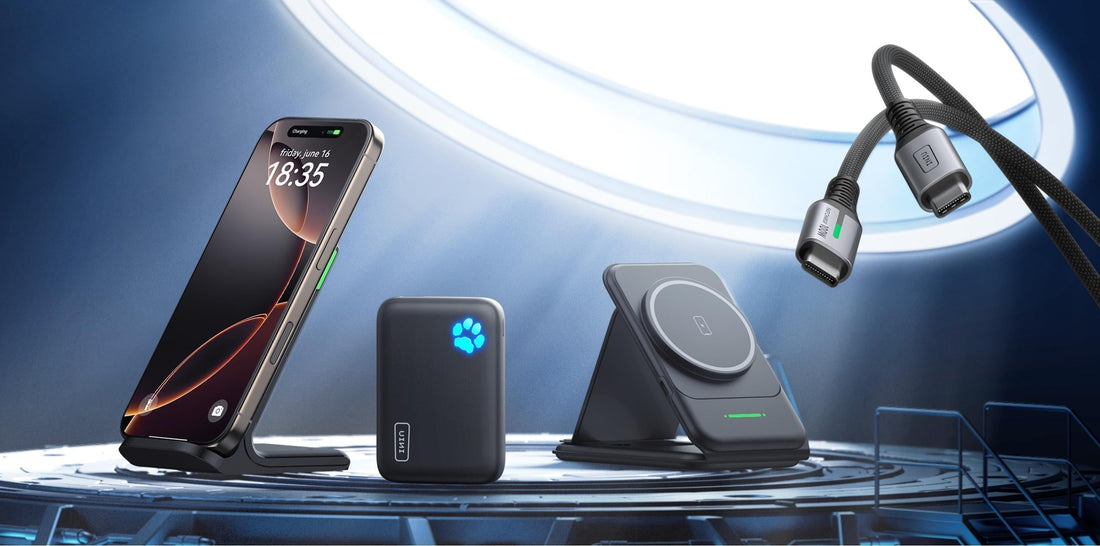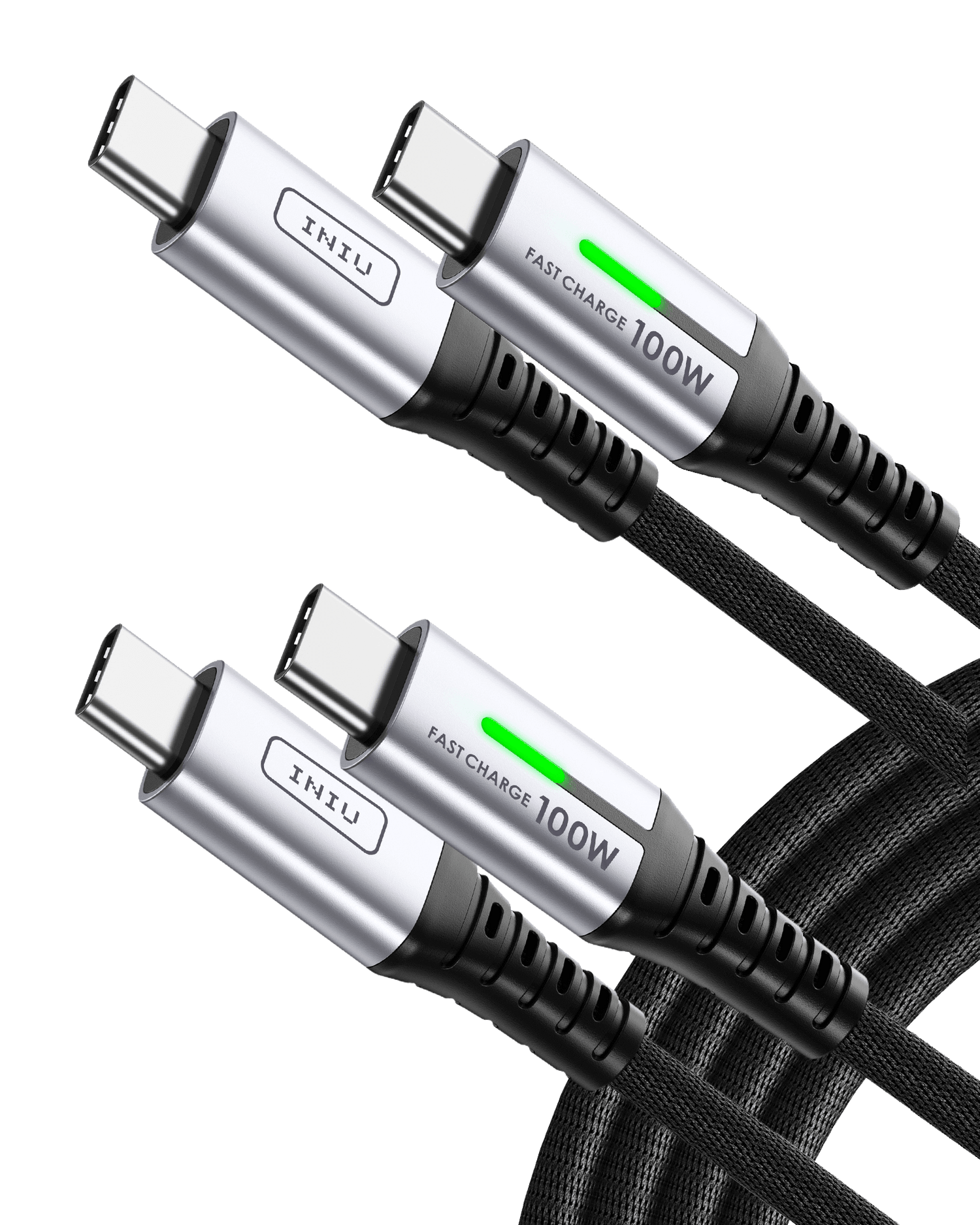Mobile innovation also revolutionizes charging habits. Wireless Charging vs Wired Charging is a common conundrum for users, with both having its share of pros and cons. Here, we'll discuss their advantages in terms of speed, convenience, battery impact, and cost. We'll also recommend when to use which and demystify myths about wireless charging.
What Is Wireless Charging?
Wireless charging is all about transferring power from a pad to your device via electromagnetic fields, and you don't even need to plug anything in. Just place your device on the pad to start the charge. Typically, wireless charging usually follows the Qi standard, which are applicable to several smartphones like iPhones.
Wireless charging is very convenient, though slightly slower, since it is less efficient. It eliminates all those cluttered wires, so your charging station looks tidier and more organized.

What is Wired Charging?
Wired charging is the classic cable method for your phone. USB-C (Currently widely used by most phones), Lightning (Apple), and Micro-USB (older phones) are the standard cables. It's the tried-and-tested method that's been a top choice for decades. Wired charging is awesome 'cause it provides you with a direct connection for fast and stable energy flow, so it's people's go-to choice for fast charging, New fast wired charging is usually faster than wireless charging, which makes it a top choice for people on the go.
Who will Win in Charging Speed?
New fast wired charging, especially high-wattage types, is generally much faster than wireless charging. Standard wired charging, however, offers speeds similar to Qi2 wireless charging. Though wireless chargers, especially the portable wireless charger, are getting better and charging faster, they still lag a bit behind.
What Affects Charging Speed
There are a few things that decide how fast a device charges, the cable you use, and the tech behind the charging system. Wired charging can deliver up to 65W or more, but wireless charging usually tops out at about 15W.
| Charging Method | Max Speed | Efficiency |
| Wireless | Up to 15W | Lower |
| Wired | Up to 140W+ | Higher |
Even with wireless charging innovations, wired charging remains the most consistent and fastest method, especially when you need that speed boost in an emergency.
Best Uses for Wireless Chargers
Wireless chargers are so convenient, so they're really useful in all kinds of situations. Here are some of the best uses for them:
- Desk setup: Keep a wireless charging pad on your desk to charge conveniently during the day without dealing with cords.
- Night charging: Simply place your phone on the iPhone wireless charger overnight, and it gets charged without any fuss.
- Minimalist rooms: Wireless charging does away with wires, providing a neat solution for a wire-free room.

Does Charging Method Hurt Your Battery?
Wireless charging and wired charging impact the health of the battery differently, primarily due to heat, which is actually the primary culprit destroying battery life.
Heat: The Enemy of Batteries
Both charging methods generate heat, and wireless charging generates more heat as it is less efficient. Excess heat over time will damage the battery and shorten its life. Most newer models, like iPhone wireless charger models, do have thermal management systems in place to manage heat. Many wireless charging manufacturers are continuously introducing new temperature control systems to reduce overheating.
Wireless vs Wired Cost Breakdown
In the U.S., the price for an iPhone charger varies significantly between wired and wireless options. A standard wired charger is generally more affordable, especially models like basic USB-C adapters. Third-party fast chargers are also available at relatively low prices. In contrast, wireless chargers tend to cost more. Branded magnetic chargers and reliable third-party options usually come with a higher price tag. While wired chargers offer a lower entry price, wireless chargers provide cord-free convenience at a premium.
Making Your Choice: When to Go Wireless
Going wireless is all about what you want. Wireless charging is perfect for convenience and a tidy setup. It's perfect for desks, nightstands, or wherever you'd prefer a simple, mess-free experience. For quick, stable charging, wired is the way to go. It's the fastest method of charging your device when you're in a hurry.

Debunking 4 Wireless Charging Myths
Myth 1: "Wireless Charging Is Inefficient."
While wireless charging is indeed less efficient than wired charging, it doesn't make a difference. The power lost is so insignificant that it shouldn't noticeably affect your energy usage. Wired charging does create heat, but because it is more efficient, it creates less of it. So, if you need a more efficient way to charge, wired charging is the way to go.
Myth 2: "Wireless Chargers Are Dangerous."
Wireless chargers are safe to use with certified devices. All of them, if not most, including iPhone wireless charger, have safety features like thermal management and automatic power cut-off for safe charging.
Myth 3: "Wireless Charging Is Much Slower."
Wireless charging is slower than new standard fast charging wired, but with the availability of fast wireless chargers that provide up to 15W, it is sufficient for meeting basic charging needs.
Myth 4: "Wireless Charging Makes Things Hot."
Therefore, although wireless charging generates more heat than wired charging, heat control is managed by the new devices. Overheating is very unlikely to be a problem if you're charging with a decent-quality wireless charger.
FAQ About Wireless and Wired Charger
Q1. Is Wireless Charging Bad for My Phone Battery?
A: Wireless charging won't destroy your phone's battery if you're using a certified charger in the right way. Heat can be a problem, sure, but if you get it aligned properly and have good materials, you will keep that risk really, really low.
Q2. Will Wireless Chargers Work With Older Phones?
A: Some recent phones have Qi wireless charging as a standard feature. If your phone doesn't come with it by default, you can usually purchase a wireless charging adapter or case, which is especially compatible with the iPhone 12-16 series.
Q3. Is Wireless Charging Slower Than Plug Charging?
A: Yes, wireless charging is slower than new high-wattage wired fast charging, but recent phones do support wireless charging at faster speeds of up to 15W. When it comes to fast charging, though, wired charging is still faster. Charging speed also depends on the maximum power a device can accept. For example, many smartphones can only handle up to 18W of charging power.
Q4. What Is the Lifespan of Wired Charging Cables?
A: Wired charging cables last 6 months to a year, depending on use. Cables do deteriorate due to repetitive flexing or abuse, so replace them when they are no longer snug.
Q5. Is Wireless Charging Overnight Ok?
A: Yes, wireless charging is perfectly safe to use overnight. Just make sure that your phone is properly aligned on the charger to avoid any overheating.
Wired or Wireless?
It is up to you and what you need to charge wirelessly or wired. Say goodbye to cables for a simpler, clutter-free existence. Wireless charging is a total convenience for desks, nightstands, or wherever you don't necessarily need to charge with urgency. For power, speed, and effectiveness, use wired charging; it's the quickest and most secure form of fast charging. Both alternatives have their strong points, so the best one for you will depend on your use and personal preference.




